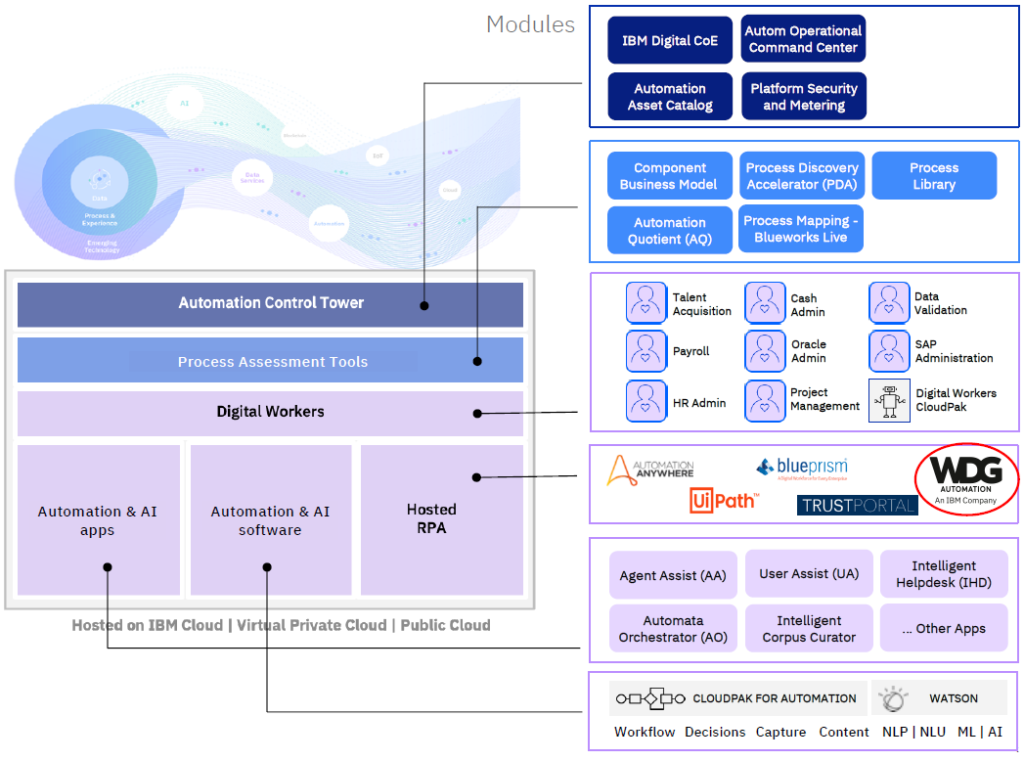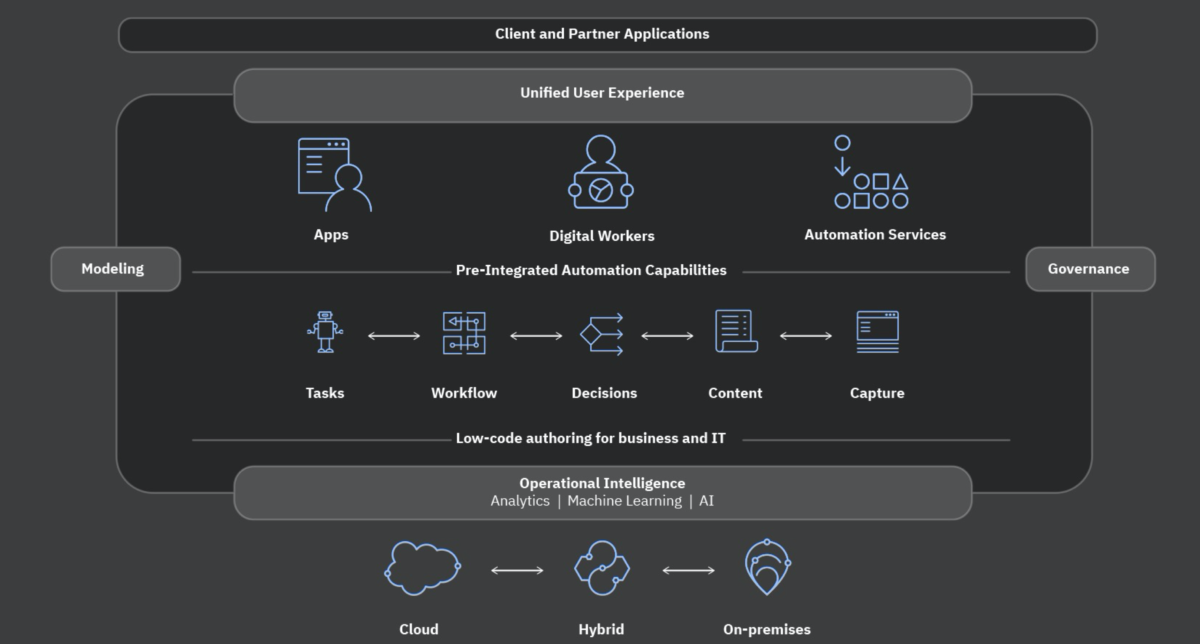The announcement that IBM was acquiring WDG Automation for their RPA capabilities was weeks ago, but for some reason the analyst briefing was delayed, then delayed again. Today, however, we had a briefing with Mike Gilfix, VP Cloud Integration and Automation Software, Mike Lim, Acquisition Integration Executive, and Tom Ivory, VP IBM Automation Services, on the what, why and how of this. Interestingly, none of the pre-acquisition WDG executives/founders were included on the call.
IBM is positioning this as part of a “unified platform” for integration, but the reality is likely far from that: companies that grow product capabilities through acquisition, like IBM, usually end up with a mixed bag of lightly-integrated products that may not be better for a given use case than a best-of-breed approach from multiple vendors.
The briefing started with the now-familiar pandemic call to action: customer demand is volatile, industries are being disrupted, and remote employees are struggling to get work done. Their broad solution makes sense, it that is focused on digitizing and automating work, applying AI where possible, and augmenting the workforce with automation and bots. RPA for task automation was their missing piece: IBM already had BPM, AI and automated decisioning, but needed to address task automation. Now, they are offering their Cloud Pak for Automation, that includes all of these intelligent automation-related components.
Mike Lim walked through their reasons for selecting WDG — a relatively unknown Brazilian company — and it appears that the technology is a good fit for IBM because it’s cloud-native, offers multi-channel AI-powered chatbots integrated with RPA, and has a low-code bot builder with 650+ pre-built commands. There will obviously be some work to integrate this with some of the overlapping Watson capabilities, such as the Watson Assistant that offers AI-powered chatbots. WDG also has some good customer cases, with super-fast ROI. It offers unattended and attended bots, OCR (although it stops short of full-on document capture), and operational dashboards. The combination of AI and RPA has become increasingly important in the market, to the point where some vendors and analysts use “intelligent automation” to mean AI and RPA to the exclusion of other types of automation. I’m not arguing that it’s not important, but more that AI and other forms of intelligence need to be integrated across the automation suite, not just with RPA.
IBM is envisioning their new RPA having use cases both in business operations, as you usually see, and also with a strong focus on IT operations, such as semi-automated real-time event incident management. To get there, they have a roadmap to bring the RPA product into the IBM fold to offer IBM RPA as a service, integrate into the Cloud Pak, and roll it out via their GBS professional services arm. Tom Ivory from GBS gave us a view into their Services Essentials for Automation platform that includes a “hosted RPA” bucket: WDG will initially just be added to that block of available tools, although GBS will continue to offer competitive RPA products as part of the platform too.

It’s a bit unusual for IBM GBS and the software group to play together nicely: my history with IBM tends to show otherwise, and Mike Lim even commented on the (implied: unusual) cooperation and collaboration on this particular initiative.
There’s no doubt that RPA will play a strong role in the frantic reworking of business operations that’s going on now within many large organizations to respond to the pandemic crisis. Personally, I don’t think it’s a super long-term growth play: as more applications offer proper APIs and integration points, the need for RPA (which basically integrates with applications that don’t have integration points) will decrease. However, IBM needs to have it in their toolbox to show completeness, even if GBS ends up using their competitors’ RPA products in projects.


Sandy thanks for sharing your thoughts on the acquisition, always appreciate your perspective.
It feels like the right overall strategy, to include RPA in their packaging as an integral part of the offering, but it takes time to execute and deliver on that strategy (which I’m sure was a strategy they settled on before they completed the research and due diligence on a specific acquisition). Also interesting points about software group and GBS.
+1 for “companies that grow product capabilities through acquisition […] usually end up with a mixed bag of lightly-integrated products”.
These combinations also make life harder for customers planning their budgets as they struggle to understand which SKU includes which features. But that’s only a problem for vendors that don’t bring their own systems integrator to the table: “our team will be happy to help you configure your solution; you’ll need a team of 15 delivery professionals ranging from $250-$1,200 per hour.”